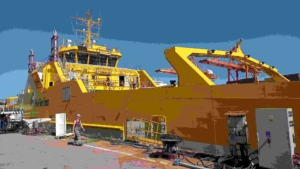Decarbonization in maritime transport – the four driving engines of decarbonization. Ports need to support shipping

Technical, commercial, regulatory and so-called The fourth combustion revolution (alternative ecological fuels) are four groups of actions that must be implemented in order to make progress in decarbonising shipping, said Philippos Phillis, president of European Community Shipowners’ Associations (ECSA).
All leading operators have adopted decarbonisation strategies. The introduction of innovation begins already in the design phase, before the incorporation of new ships into global services.
Ports will also bear the financial burden of decarbonisation. Sea ports are forced to develop bunkering systems, build installations for fast charging of electric ships, and ensure the safe storage and distribution of various types of fuel. Therefore, it will not be without significant modernization investments. And in many cases, complete new installations will have to be built.
Technological changes must be accompanied by legal regulations, introduction of safety instructions and certificates, including the exchange of crews and training of seafarers and land service in the use of new technologies.
Decarbonisation affects not only shipowners and ship operators. Decarbonization also has its land dimension. It is a process that covers the entire land and sea logistics chain. “Full speed ahead” is already running. But there is still a man behind the wheel.
